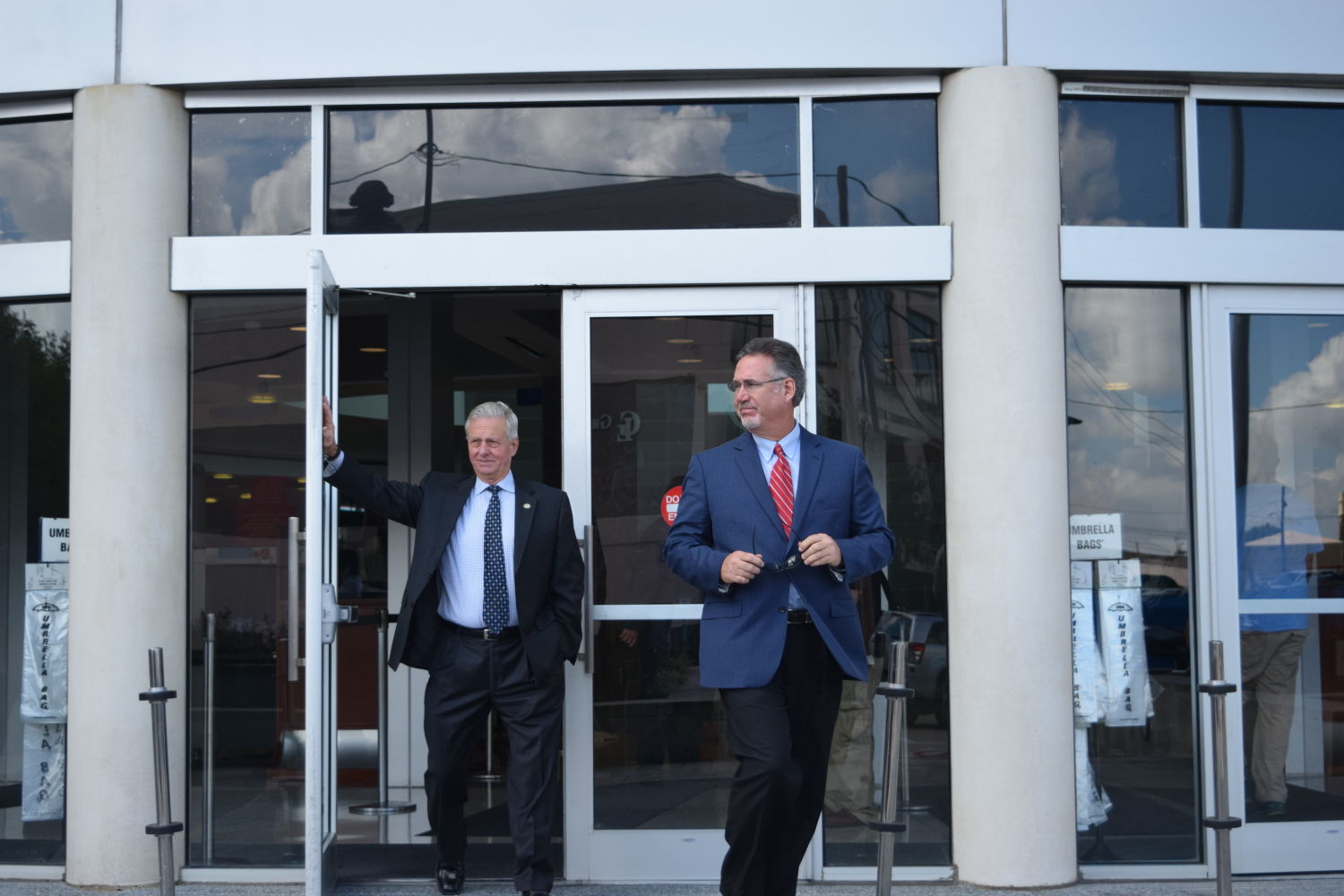News Briefs
February 16, 2016
Roman Antoine Guidry
February 17, 2016A state appellate court panel has ruled that a defamation suit against Houma television station HTV can move forward, following its rejection of arguments that the suit was intended to thwart the free speech rights of the entity and its owner, broadcast personality Martin Folse.
The Fifth Circuit Louisiana Court of Appeal’s rejection of Folse’s attempt to block the suit, brought by Trio Leasing, which operated the Road Runner convenience store at La. Highway 311 and St. Charles Street in Houma, said the case appears to have merit. A judge or jury will still have to decide on the ultimate outcome, unless attorneys come to a settlement prior to trial.
“Although I am disappointed, I think that justice will prevail when all the facts are laid out at the appropriate time,” Folse said in response to the court’s action. “In the meantime, we will use every method to insure that the public knows the truth.”
Mary Ellen Roy, Folse’s New Orleans-based attorney, said she is also disappointed.
“We believe the court is wrong on both the facts and the law,” Roy said. “We are considering all our options.”
Roy could petition the Louisiana Supreme Court to review the case, but that court is not required to hear the matter. At this point there is no option for review by the federal courts.
Paul Carriere, who represents Trio, declined comment.
The legal action arises from the Nov 10 airing of Folse’s news and public affairs program, Bayou Time, during which he related details of a dispute between a clerk at the store and an Army veteran, neither of whom he initially named. Based on information given to him by the veteran, later identified as Houma neurosurgeon Phillip McAllister, Folse stated that the clerk made vulgar references to veterans in general. During the same broadcast, Folse called on local politicians to halt buying fuel and other products from stores that are owned by people with links to Middle Eastern nations, basing the boycott call on a series of convenience store closures by law enforcement for allegedly peddling synthetic marijuana. One of those actions resulted in evidence that money from the stores was routed to Yemen, raising a flag of potential funding of terrorist operations.
The Road Runner store was not one of those shut down in connection with those raids. As he took a series of calls from angry viewers, including veterans who vowed to protest the alleged rudeness of the clerk toward McAllister, video of the raids on other stores and occasional shots of the Road Runner store ran on the screen.
Veterans staged a protest at the store, which Folse himself did not organize but did attend, ostensibly for news coverage purposes. The store, which had been subject to threats, was shut down for the day. According to legal papers, its business suffered. The degree of damages has not been presented as of yet in court documents.
Folse repeated McAllister’s account of the dispute with the clerk, later identified as Sagar Simkhada, indicating that the clerk was Middle Eastern. Later investigation indicated that Simkhada was a native of Nepal. He told The Times that his family is Buddhist. The owner of the store was a Vietnamese-American.
A hearing limited to the freedom of speech matter – arising from a special petition filed by Folse – was held by 24th Judicial District Judge Nancy Miller in October. Miller sided with the store on most counts of the Folse petition, writing that his protest relied on a “strained parsing of the defamatory statements into isolated categories, and even individual sentences, in such a way as to make them seem unrelated to each other.”
“Breaking the statements into tiny isolated parts robs them of their meaning,” the decision states. “They were stated in a single breath and must be analyzed as such.”
Folse’s statements, Miller wrote, were presented as fact rather than opinion.
The suggestion within Miller’s decision is that taken at full face value, the broadcast, coupled with postings by Folse on his Facebook page, gave the impression that the Road Runner store was also engaged in synthetic marijuana sales. Folse denies he has ever overtly stated such a thing. He also says that he has evidence relevant to the question, but has not yet presented that evidence in court. There were references in court papers to information Folse said he obtained from law enforcement officers supporting the suggestion of either the store or the clerk having a connection to the synthetic marijuana cases. But that argument, in Miller’s view, was not enough to sustain any claim that Folse’s presentation, as she interpreted it, was justified.
Miller said Folse was “unable to present any admissible evidence that Mr. Simkhada or the Road Runner convenience store engaged in, or were ever cited for the sale of synthetic marijuana, or that they were in any way connected to terrorism.” •









